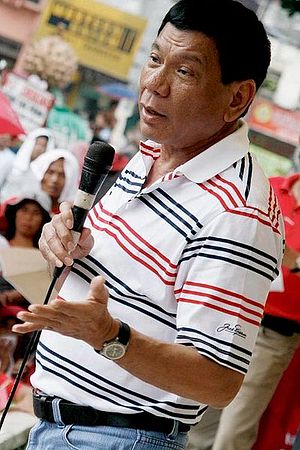On August 7, Philippine President Rodrigo Duterte greeted the country with another list of names of government and elected officials who are allegedly involved in the illegal drug trade. The list included seven judges, 56 current and former local government officials, three members of the lower house, and 95 police officials and personnel. Due to its unexpected release, several citizens contested the credibility of the president’s source and questioned the morality of his tactics against the illegal drug trade.
Meanwhile, the growing number of voluntary surrenders threatens to overwhelm the country’s current rehabilitation and after-care programs. According to the Philippine National Police, as of July 13, 2016, 69,000 drug users had surrendered to the authorities. By this week, the figures had skyrocketed to half a million already.
The government is crafting its response. Last month, the Department of the Interior and Local Government (DILG) initiated a series of inter-agency meetings on the construction of rehabilitation centers and a community-based rehabilitation program. In addition, the Interior Secretary Ismael Sueno pledged to look into narco-politics, given the inclusion of regionall and municipal elected officials on Duterte’s list.
Recognizing the desire to eliminate, if not completely, the demand for drugs, there are several blurred lines in this endeavor. First, during one of the inter-agency meetings at the DILG, the partner government agencies (including the Department of Social Welfare and Development, Department of Health, Department of Education, Philippine Drug Enforcement Agency, Technical Education and Skills Development Authority, the Philippine National Police, Department of Justice, Dangerous Drugs Board, and Department of Environment and Natural Resources) unanimously confessed that the country lacks rehabilitation centers and even professionals to treat addiction.
Former drug dependent and now third district representative at the Province of Negros Oriental, Rep. Arnulfo Teves, Jr., who was invited as a resource speaker for the July 26 inter-agency meeting, warned the group that accepting voluntary surrenders would be nonsense if their addictions would not be addressed. As a response, Cabinet Secretary Leoncio Evasco proposed to tap the business sector and to bring the public-private partnership program from the national level down to the local level.
Second, the “name and shame” strategy fuels the prevailing negative perception toward drug users. Even if the voluntary surrender of low-profile individuals may not be laid bare on national television, the label itself downgrades the value of their lives. This could hamper the employment prospects of recovering drug dependents (RDDs) and increase their isolation in the community. Given the promises of an ever-integrated ASEAN Economic Community, how can RDDs, especially young adults, compete with their counterparts in the Southeast Asian region if they are not empowered at home? Compared to other marginalized groups, RDDs are more vulnerable to the heightened competition in the labor market among the 10 ASEAN member states.
The administration’s interest in providing quality education to indigenous groups and people with disabilities is noteworthy. However, it’s time to recognize the apparent discrimination against RDDs as well, who are also covered by the “quality education for all” provision stated in the United Nations General Assembly Resolution 70/1. Already, dismissing RDDs as somehow less than fully human has resulted in hundreds of alleged drug users and pushers being brutally killed. On social media, many pro-Duterte netizens justified the extrajudicial killings, completely neglecting these individuals’ humanity. This recurrent scenario contributes to the fading reputation of the country once known as one of the bastion of human rights in Southeast Asia.
The Duterte administration deserves praise though for acknowledging the family as part of the rehabilitation process. Some public and private rehabilitation centers implemented such programs in their respective communities; Family Counseling units in the barangays are one example of a well-rounded after-care program. Despite everything, unpacking the issues within the families remains a big concern. For example, Cabinet Secretary Evasco mentioned that most of the “drug addicts” are from families of Overseas Filipino Workers. This suggests a shift to an unprecedented approach taking into account how Filipino families have been transforming in the age of globalization, where human resources and products cross the borders in no time — whether it is done legally or not.
To conclude, if the Duterte administration aims to eradicate drug addiction once and for all, the “name and shame” strategy is not the best option for a statesman. In facing this multi-faceted issue, the Philippines should not only carry out a war on drugs alone.
Lavilla Dauag is a graduate student at the University of the Philippines Diliman. She is currently working at the Department of the Interior and Local Government.

































